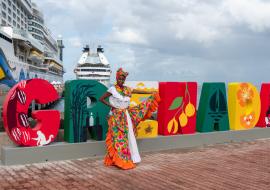The Summer of Anti-Tourism: Europe's Escalating Backlash

Photo: Getty Images
Anti-tourism protests have swept across Europe this summer, with significant demonstrations in the Netherlands, Greece, and particularly Spain.
In Barcelona, early July saw protesters spraying tourists with water pistols while chanting, "tourists go home." Thousands also took to the streets in Mallorca, criticizing the island’s tourism model for benefiting a few while impoverishing workers.
At the heart of these protests is the issue of rising rents and housing prices, making home ownership unattainable for many residents. Carlos Ramirez, a school teacher in Barcelona, has been saving for a house for years but finds prices in the Catalan capital prohibitive. Like many, he blames mass tourism for the increasing costs and the necessity of sharing living spaces.
Barcelona’s mayor, Jaume Collboni, confirmed that rents have increased by 68% over the past decade, a pattern seen across European cities. In response, locals have staged extreme protests, including calls for a hunger strike in the Canary Islands. On July 6, anti-tourism protesters in Barcelona gained international attention, reflecting a deep-seated resentment among residents.
These sentiments are echoed by experts like Antje Martins from the University of Queensland, who sees the protests as a reaction to unsustainable tourism management rather than a direct conflict between tourists and locals. Residents feel marginalized, receiving no benefits from the tourism boom while being priced out of their homes.
Some European cities are taking measures to control tourism. Venice’s temporary €5 tourist charge, introduced to regulate visitor numbers, was deemed a success by mayor Luigi Brugnaro. However, critics argue it promotes a "Veniceland" image, turning the city into a theme park. Susanna Polloni from the Solidarity Network for Housing warns that mass tourism is already damaging local services and inflating house prices.
Barcelona is also considering raising its tourist tax for cruise passengers and ending licenses for short-term rentals to alleviate crowding and housing issues. The city's current tourist tax is a significant revenue source, generating about €100 million last year.
Disrespectful tourist behavior has also fueled anti-tourism sentiments. Incidents like vandalism in Florence and disruptive behavior in Mallorca and Benidorm have exacerbated local frustrations. Cities like Amsterdam have responded with "de-marketing campaigns" to deter undesirable tourists, though these efforts can have mixed results.
Sebastian Zenker, a professor at Copenhagen Business School, explains that while such campaigns can reduce crowding, they might also increase inflation and gentrification by attracting wealthier tourists. Mallorca, for instance, saw prices soar after banning certain activities aimed at "drinking tourists," with little financial benefit to local communities.
The solution, according to Zenker, lies in reinvesting tourism revenue into local communities and creating jobs that allow residents to afford living costs. Sustainable tourism management is crucial to balancing the benefits of tourism with the well-being of local populations.
Source: CNN














